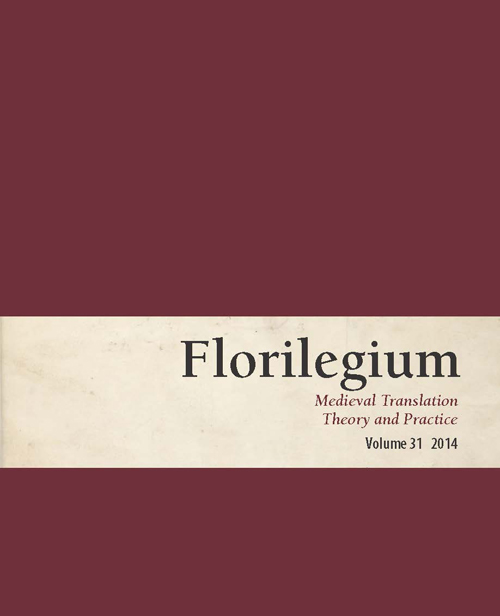"Just as Fragments are Part of a Vessel": A Translation into Medieval Occitan of the Life of Alexander the Great
Abstract
For the full article, please visit Project MUSE or click here (subscribers only).
This article examines the Occitan prose biography of Alexander the Great, which is for the most part a translation of Justin's Epitoma historiarum Philippicarum of Pompeius Trogus. The text appears in L'Abreujamen de las estorias (c.1321-1326), an Occitan version of the universal chronicle by Fra Paolino Veneto (c.1270-1344). It is a rare example of vernacular translation of Justin's influential work. Studying this unedited text provides new insights into the working methods of late medieval translators.
Résumé
Cet article offre une analyse d'une vie en prose occitane d'Alexandre le Grand, traduite principalement de l'Epitoma historiarum Philippicarum de Trogue Pompée, par Justin. Le texte s'insère dans L'Abreujamen de las estorias (c.1321-1326), une version en occitan de la chronique universelle de Fra Paolino Veneto (c.1270-1344). C'est un exemple très rare de traduction au Moyen Âge de l'œuvre pourtant influente de Justin. L'étude de cette traduction inédite amène à de nouvelles conclusions concernant les méthodes de travail des traducteurs du Moyen Âge tardif.



